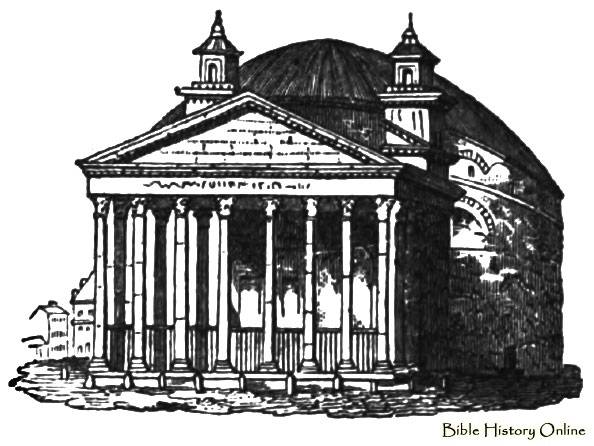
The Pantheon, or the temple of all the gods. It is the best preserved ancient building in Rome and is universally admired for its fine dome and beautiful columns.
Source:

The Pantheon, or the temple of all the gods. It is the best preserved ancient building in Rome and is universally admired for its fine dome and beautiful columns.
Source:
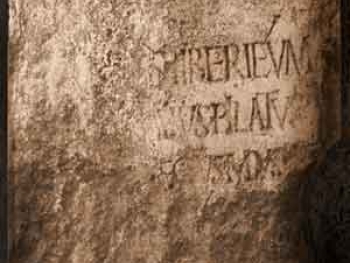
The Pilate Inscription is an inscribed relief with a dedicatory inscription to Tiberius Caesar bearing the name Pontius Pilate. It was discovered among the ruins of ancient Caesarea Maritima. It is the only known occurrence of the name Pontius Pilate...
The Gupta Empire, which thrived from the 4th to the 6th century CE, witnessed a golden age of cultural and artistic achievements in ancient India. Known for its patronage of the arts, literature, science, and philosophy, the Gupta Empire left an inde...
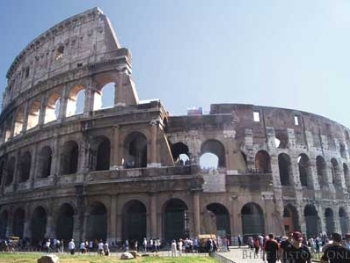
The Colosseum was known in ancient Rome as the Flavian Amphitheatre, named after the 3 emperors who were all involved in its construction. Vespasian conceived the idea and began building in 72 AD and his son Titus dedicated it in 80 AD with a 100 day...
The ancient civilizations of the Incas and Aztecs left behind awe-inspiring cities and structures that continue to captivate our imagination. From the grandeur of Machu Picchu to the imposing pyramids of Teotihuacan, these remarkable achievements in ...
The Battle of Thermopylae stands as one of the most iconic and consequential battles in ancient Greek history. Fought in 480 BCE between an alliance of Greek city-states led by King Leonidas I of Sparta and the Persian Empire under King Xerxes I, thi...
Yes, archaeological discoveries have provided evidence that supports the existence of King David, a significant figure in biblical history. While there are no direct inscriptions or artifacts that mention King David by name, several discoveries have ...
Trade played a vital role in connecting civilizations and fostering cultural exchange in the ancient world. From the bustling markets of Rome to the Silk Road that stretched across Asia, ancient trade routes facilitated the exchange of goods, ideas, ...
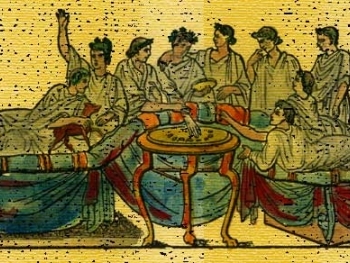
The ancient Hebrews, Egyptians, and Greeks. used to eat sitting on mats spread on the floor. The Romans actually reclined on couches around a table. The couches were arranged forming three sides of a square. The open side was for the servants who wou...
The pyramids of Egypt stand as iconic symbols of ancient Egyptian civilization, representing remarkable architectural and engineering achievements. Constructed as tombs for pharaohs, these colossal structures continue to captivate the world with thei...
In the Bible, a watchtower, also known as a lookout or watchman's tower, was a raised structure used for surveillance and observation. It served as a strategic vantage point from which watchmen could keep watch over the surrounding area, looking out ...
Slavery was deeply ingrained in the social and economic fabric of ancient Rome and Greece, shaping the structure of these societies in significant ways. With vast numbers of enslaved individuals serving as laborers, domestics, and even skilled profes...
Around 1000 BC David became king over Israel and conquered the Jebusites and stormed their fortress on Mount Zion (1 Sam. 5:5-9). Jerusalem became his home and the capital of his kingdom. He brought the Ark of the Covenant to the city and danced befo...
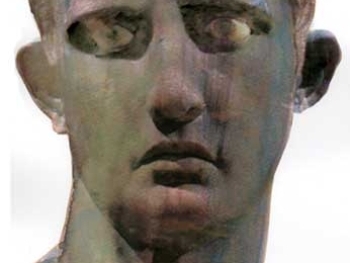
This bust was discovered by archaeologists at Meroe (Modern Sudan) and is currently in the British Museum. It depicts the face of the Roman Emperor Augustus who ordered the census just before the birth of Jesus. This brought the parents of Jesus (Jos...

In ancient Roman religion, Jupiter was the chief of the gods. The name “Jupiter” means “the best and greatest” (Optimus Maximus). He was identified with the Greek god Zeus. Jupiter was the spirit of the sky and worshiped as the god of thunder...
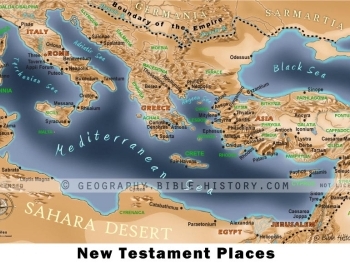
This map reveals the “Nations” within the ancient world during the first century A.D., the time of the New Testament. The New Testament world includes the areas of Israel, Asia, Greece, and Italy. During the life of Jesus his ministry took place ...
In the Bible, an alabaster jar refers to a type of container made from alabaster stone. Alabaster is a soft, white or translucent mineral often used in ancient times for crafting vessels or containers for various purposes. One notable mention of an a...

The ancient sun dial reveals the hours in a day. It has a surface with hour lines and a stick or gnomon which casts a shadow as the sun advances in its daily course. The sun dial is mentioned in the Bible as far back as the time of King Ahaz. Herodot...
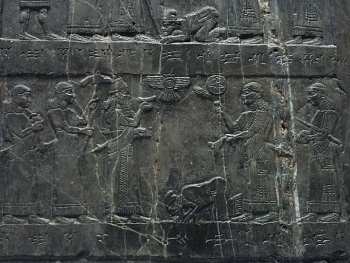
In 1846 an English traveler and artist named Austen Henry Layard was digging around the ruins of ancient Nimrud (known as Calah) in northern Iraq. He discovered something amazing, a black limestone obelisk now referred to as “The Black Obelisk of S...
Welcome to Free Bible: Unearthing the Past, Illuminating the Present! Step into a world where ancient history and biblical narratives intertwine, inviting you to explore the rich tapestry of human civilization.
Discover the captivating stories of forgotten empires, delve into the customs and cultures of our ancestors, and witness the remarkable findings unearthed by dedicated archaeologists.
Immerse yourself in a treasure trove of knowledge, where the past comes alive and illuminates our understanding of the present.
Join us on this extraordinary journey through time, where curiosity is rewarded and ancient mysteries await your exploration.




